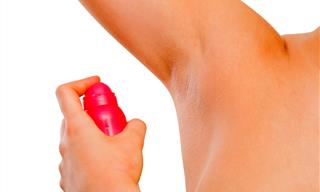Protecting your skin from the sun is important every day, but certain antibiotics may further increase your skin’s sensitivity to the sun, especially in hot weather. This sensitivity usually manifests itself in the form of severe sunburns, itchy and painful rashes, eczema or psoriasis flare-ups, as well as increases your risk of developing skin cancer.
Many groups of broad-spectrum antibiotics can make you photosensitive, too, including quinolones, tetracyclines, and sulfonamides. The popular antibiotic Ciprofloxacin (Cipro), too, can cause skin rashes. To prevent these adverse effects, you have to be very prudent with your sun protection: stay away from direct sunlight, always wear protective clothing and apply sunblock on the areas not covered with clothes every 2 hours you spend outdoors.
2. Antidepressants
Temperature regulation is a vital function of the human body, and poor regulation in the heat can land you in the hospital if you’re not careful. If you experience headaches, dizziness, nausea or feel otherwise uncomfortable or sick after a short period of time spent outdoors in hot weather, you might be more vulnerable to heat damage than most people, and antidepressants can be to blame for these uncomfortable symptoms.
Tricyclic antidepressants, such as amitriptyline (Elavil), can inhibit the body’s ability to sweat, which makes it difficult for your body to lose excess heat. Be careful and avoid spending a lot of time outdoors if you’re taking these medications.
3. Diuretics and Laxatives
Everyone knows that it’s necessary to drink water constantly when you’re in the sun, otherwise you can easily become dehydrated. Dehydration, in turn, becomes apparent when one experiences headaches, confusion, a dry mouth, and lips, or dizziness. Severe dehydration can cause urinary problems, seizures, heat injury and even hypovolemic shock, which is a life-threatening condition caused by a lack of blood volume in the body.
Diuretics, e.g. furosemide (Lasix), as well as laxatives, urge you to urinate more and can even inhibit your thirst, which, in turn, can make you more susceptible to dehydration, so it’s necessary for you to drink at least 2 liters (0.5 gallons) of water every day, unless otherwise suggested by your doctor.
4. Anti-diabetic medications
Much like antibiotics, some anti-diabetic medications (sulfonylureas), too can make your skin more photosensitive and cause burns and rashes. Other medications that can have a similar effect on the body are anti-cancer medications and even acne medications (Retin-A and salicylic acid).
That’s why it is extremely important to ask a medical specialist how each medication may affect you or a loved one during the summer months. The likelihood of developing skin photosensitivity will vary depending on the dosage of the drug, as well as the intensity of the sun and the time you spend outside.

5. Parkinson medications and antipsychotics
Medications that inhibit neural pathways, too, make your temperature regulation worse, as they can either block the neural impulses that tell your skin to start sweating in hot weather or the impulses that tell your brain the temperature is on the rise. These drugs include the common Parkinson’s medication benztropine (Cogentin), as well as medications that control your mental health, such as haloperidol (Haldol) and risperidone (Risperdal).
These medications can make it more difficult for the body to start sweating and release heat, which increases the risk of overheating. Needless to say, consult your doctor as to how much time spent in hot weather is safe for you or your loved ones and don’t make any unconfirmed changes in your or your loved one’s medications.
6. Heart medications

Certain heart medications can slow the flow of blood to the skin, which makes it harder for a person taking those drugs to rid the skin of excess heat. These medications include beta-blockers and calcium channel blockers, which are blood pressure medications that slow your heartbeat with the aim to lower your blood pressure.
If you’re taking one of these medications, monitor how you feel when you spend time outdoors. If you experience any nausea, your heartbeat changes or you feel dizzy or confused, rush to an air-conditioned and shady location and if your symptoms continue even then, call a doctor.
To prevent your body from overheating in the summer months, wear light summer clothing and a hat, drink water, and bring your own shade if you’re planning to spend a lot of time outside.
7. Over-the-counter medications
Although the majority of medications that make you more vulnerable to heat are prescription medications, some over-the-counter meds can have the same effect. Anti-allergy medications, such as diphenhydramine (Benadryl), for example, also increases the risk of overheating because it inhibits sweating.
Nonsteroidal anti-inflammatory drugs, like ibuprofen, on the other hand, promote dehydration and increase one’s risk of kidney failure because they have a damaging effect on the kidneys. Thus, make sure to drink plenty of water and stay away from the sun if you’re taking any of these medications. It is especially dangerous to spend time outdoors when the sun is at its peak (from late morning to the afternoon), so try to stay indoors during this time.
 Go to BabaMail
Go to BabaMail




























